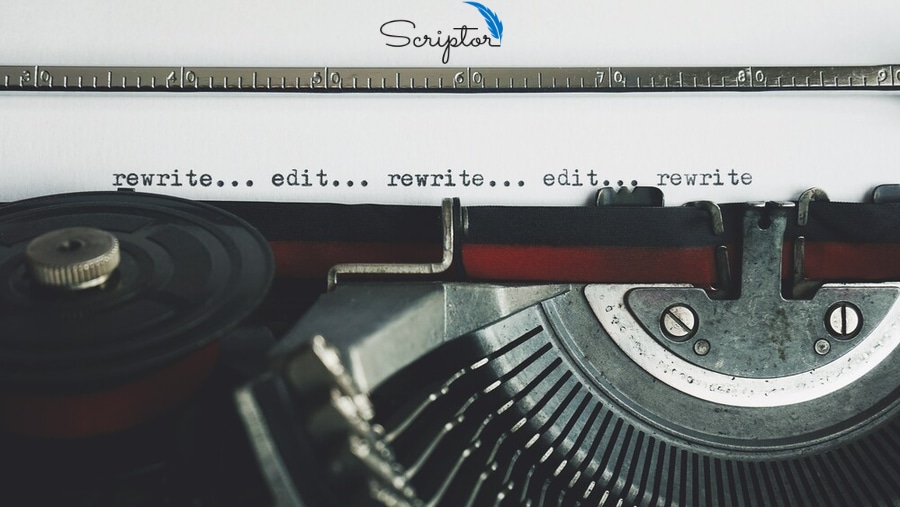Do you know the difference between content editing and proofreading? Do you have a firm grasp of why one is more important than the other?
If not, don’t worry because this blog post will break down the differences for you!
Why We Edit
If you are writing your first book, you may wonder why you even have to edit it. After all, you have already put so much work in. Wouldn’t it be nice just to be finished?
Unfortunately, there is always more work to be done regarding writing and publishing your book. You can check out this post on how to market your book if you don’t believe me.
While you may be an incredible writer who has created something spectacular from the start, most of us will still need a good amount of editing, ideally with someone who knows what they’re doing.
Think about it this way. Editing is what will turn your book from a collection of chapters into an actual story. It will make your work look professional and cut out any unwanted errors while improving the reading experience as a whole.
It could very well be the difference between readers loving your book or thinking that it’s a hastily thrown-together cash grab.
There are two main types of editing that we will cover—Content Editing & Proofreading (Line Editing).
Content Editing
When you edit your book for content, you will be looking at the piece’s structure as a whole. Broken down to its simplest form, you are rewriting or rearranging what you have already written.
To someone who just spent months to years writing a book, this may sound like a nightmare, but it’s necessary and doesn’t need to be as hard as you think.
You are just making sure all of the details of your book are in sync, such as your characters, setting, plot twists, and story arcs.
Your characters, for instance, can and should change, but it needs to make sense in the context of the book. If you find your characters making inconsistent decisions throughout the story, this is your chance to create a fix.
In non-fiction books, you will use content editing to fact-check and rearrange any out-of-place chapters.
You may have to rewrite an entire section of your book because it no longer makes sense with your ending. So it may help to have someone experienced with content editing give you a second set of eyes and point out any inaccuracies you may have missed.
It is much easier for an outside party to understand what needs to happen for a story to make sense because they haven’t been a part of the writing process.
Still, if you are enlisting help, you should find someone who knows what they are doing. There’s no reason to follow lousy advice just for the sake of saying you edited.
Proofreading
For most of you, this will be the boring part, though it’s no less important. The proofreading process is where you go line-by-line through your book and make sure there are no errors.
Doing this is a little easier nowadays because of word processors. For example, Microsoft Word and Google docs will independently pick up simple spelling mistakes, which is a great help. The problem is that they are not perfect systems, and the more words you’ve written, the more likely there will be mistakes.
There are services such as Grammarly that you can use (and which I’m using right now) to pick up on any other errors you may have missed, such as sentence fragments, split infinitives, or passive voice.
That is, of course, assuming that it was a mistake in the first place. Your writing style can be whatever you want it to be. Listening to every one of Grammarly’s recommendations may eventually make your writing more confusing than it was at the start. The critical thing to remember is that these tools assist you, they don’t do all of the work.
The point is to make sure your book turns out exactly the way you want it to. Of course, there is always the possibility that an error sneaks by the process, but you can minimize it with editing.
Hiring Someone Else To Do It
No one is going to think that you’re lazy for hiring someone else to do your editing for you. Most likely, authors are going to recommend that you do just that.
If you are working through a publisher, you probably won’t have to worry about this part of the process. They will have people to do the editing for you. However, it will still be on you to make sure that they didn’t alter your vision for the story in any way.
This may happen if an editor changes something in proofreading that you had left in there on purpose. Although most editors will stick strictly to what they know, they can change and consult you on anything else.
Right now, Fiverr or Upwork are great places to find freelance editors, especially if you are on a budget. You can shop around a bit and find someone who specializes in your genre.There’s an editor out there for everyone.
Wrap Up
Hopefully, after reading this post, you understand the different types of editing and how they can be helpful to you. It may seem like extra work, but remember how hard you have worked on finishing this book.
Would you want to release it in anything but its best state? Probably not. Even if you don’t have the time (or willpower) to edit yourself, at least reach out to a professional that can do it for you.
It may cost a little extra to find someone worthwhile, but you will be glad you did. And hiring someone on the cheap isn’t the end of the world either. There are plenty of good editors out there just getting started.
Just remember to do what works well for you, and you’ll have an incredible book in no time.




